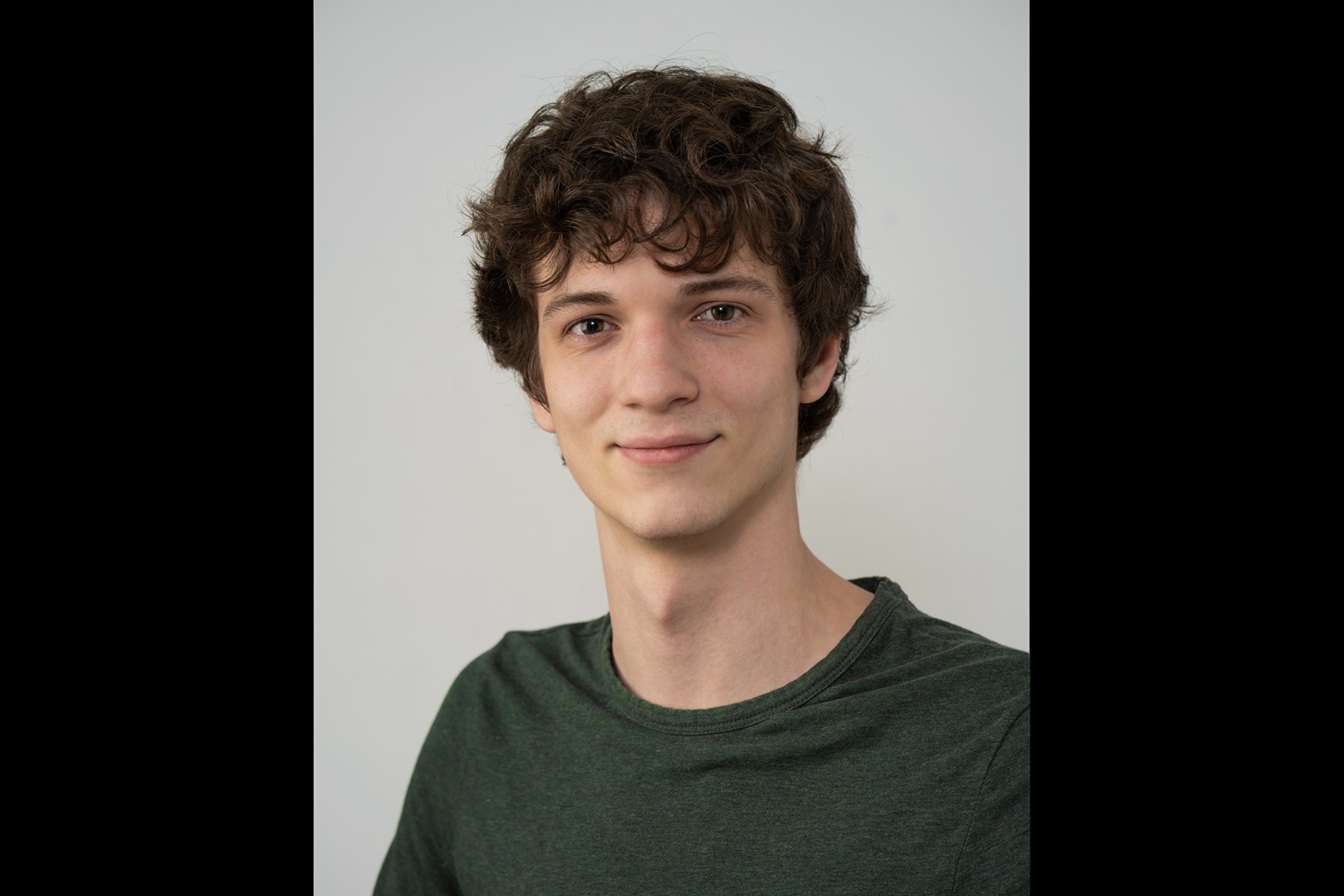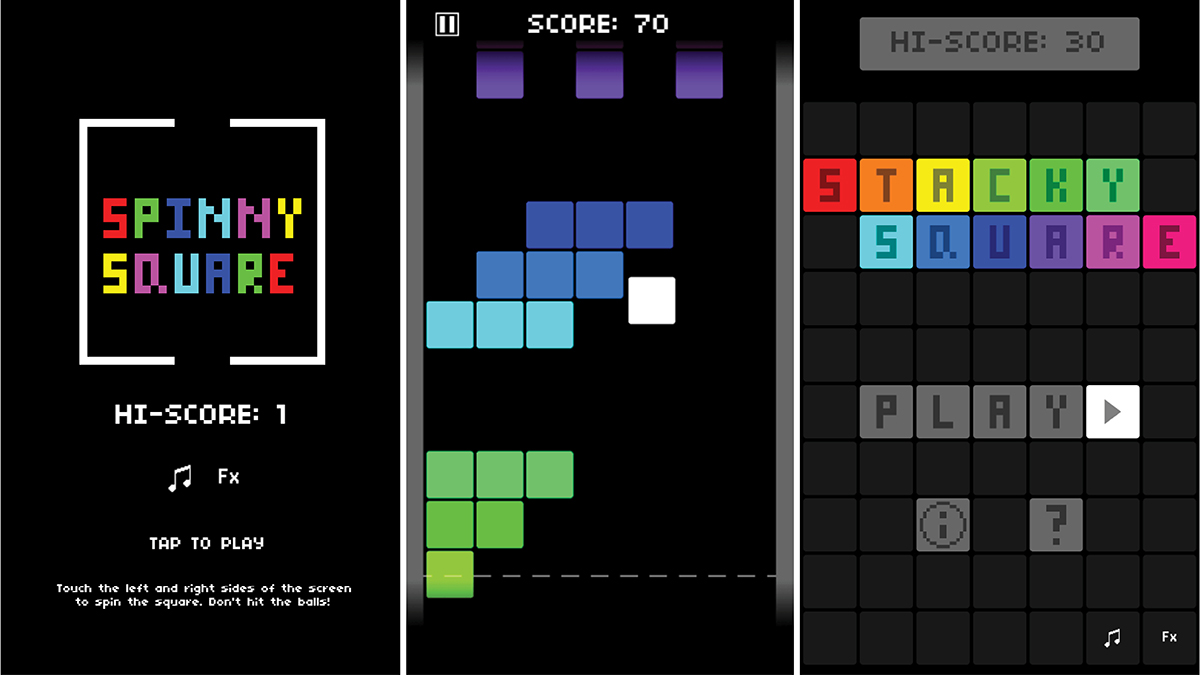Student forges entrepreneurial path as a creative technologist
Nathan Irving ’24 (motion picture science) has an entrepreneurial spirit — with an added creative touch.
“I like the idea of doing stuff differently,” Irving said. “A lot of entrepreneurs have that in a more business- or financially-minded way than I do, but I like making stuff that has a reason to be mine.”
While at RIT, Irving developed problem-solving technology for creatives and arcade-style video games with novel mechanics.
He is spending his final semester completing his capstone research and enrolled in the MAGIC Center’s Traver Creative Technologist Founders Program. For both ventures, he identified imperfections of existing technology and is improving associated tools and processes.
Irving built a new version of a spectroradiometer for his capstone project. A spectroradiometer is a light measurement tool measuring the wavelength and amplitude of light emitted from a light source.
“If you look into a prism or look at something that makes a rainbow, it basically measures the intensity of each part of that rainbow,” Irving said.
Irving said current spectroradiometers on the market are sensitive to vibration. He is working on creating a device invariant to vibration, making it more suitable for remote sensing and capturing land information from an aerial, drone view.
He said the solution also has the potential of being manufactured small enough to bring the device into consumer-level hardware like phones.
“It would extend the use of color measurement and spectral measurement of light,” Irving said.
Irving is working on other research also rooted in the color and spectral light space as part of the Traver Creative Technologist Founders Program — a funded entrepreneurism residency and business incubator where students build technological solutions for creative industries. The program’s namesake, John Traver ’10 (motion picture science), co-founded Frame.io, an award-winning video review and collaboration platform acquired by Adobe in 2021 for $1.275 billion.
Irving partnered with fellow motion picture science student David Oluwagbemi in the Traver program, in its second cycle of student participation, on developing a software program that measures and automatically calibrates computer monitors to appropriate industry standards.
Existing monitor calibration tools, Irving said, are largely expensive, geared toward commercial use, and complicated to interface with. With their solution, they envision a quick and easy process for creatives to ensure their monitors meet certain color and display specifications.
“You can sync your phone to the monitor and it will instruct you to point the phone at the monitor and it will run through a series of patches,” Irving said. “That will give information about the accuracy of the monitor. We’re also making a second side of the platform, which tells that information to a computer monitor and the computer will generate a color calibration profile that is stored natively on the device.”
Irving and Oluwagbemi, along with computer science student Hridiza Roy, also developed a software utility that can apply saved photo-editing presets to a series of images for the Traver program’s annual Hack-a-Jam-a-thon. They later entered it into RIT’s Tiger Tank competition.
Irving has his hand in game development as well. Early during his time at RIT, he familiarized himself with game engines and made three 2D, arcade-style games — Spinny Square, Stacky Square, and Slidey Square — that are available to play on his website and download via Google Play and the App Store.
Irving's three 2D-animated games he developed, from left: Spinny Square, Slidey Square, and Stacky Square.
Just as he targets market shortcomings with his software solutions, Irving’s 2D games are made with the same approach. It resulted in quick-play, casual games that only take minutes of someone’s time.
After graduation, Irving plans to continue work on his independent company created through the Traver program. And this summer, he will attend a ceremony as a student finalist for the Herbert W. Vanden Brul Student Entrepreneurial Award, an honor through the Saunders College of Business recognizing students who demonstrate entrepreneurial promise.
Irving’s interest in software and technology made him an inherent fit for the motion picture science program and university offerings like the Traver program. At RIT, he has flourished as a creative technologist.
“It’s an engineering degree that gives people the insight to communicate better with artists,” Irving said of the motion picture science program. “It’s not a generalized major — it’s a major that specializes in everything.”





